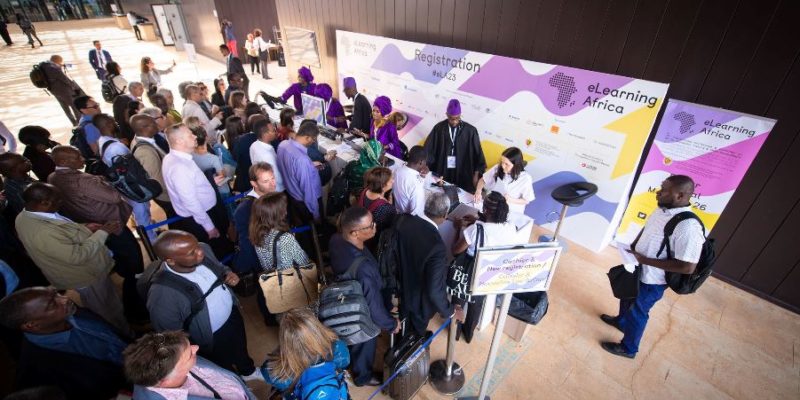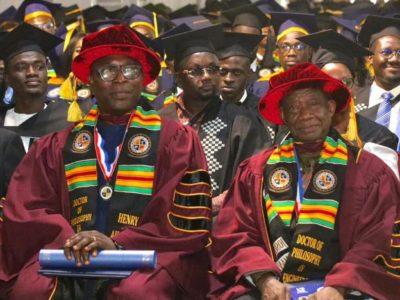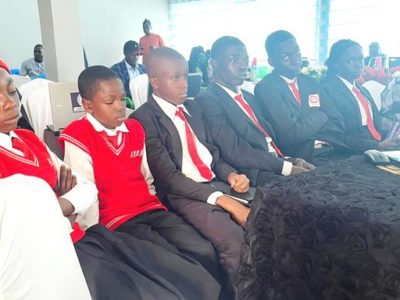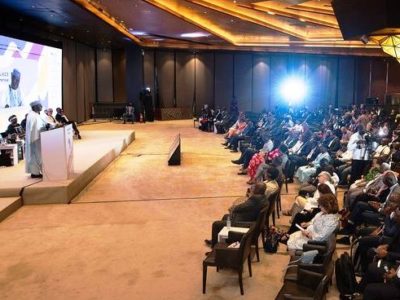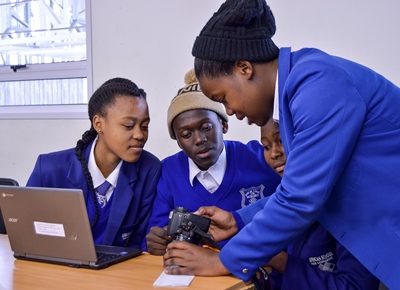From May 24-26, 2023, the Abdou Diouf International Conference Centre (CICAD),Dakar, Senegal, played host to the 16th edition of eLearning Africa bringing together technology and education experts, policy makers and advocacy groups, government and private sector stakeholders from across the world to set the agenda for how the continent of over a billion people and the world’s youngest demography could best leverage developments in eLearning.
Population, Collaboration, Policies and Expertise
The current population of Africa is 1,433,618,728 as at May 27, 2023, based on the latest United Nations estimates. Africa population is equivalent to 16.72% of the total world population, according to Worldometer.
RELATED: eLearning Africa 2023 stresses how education and technology can secure Africa’s future prosperity
The discussions were plethora and they largely centred on leveraging emerging technologies including Artificial Intelligence (AI), implementing the right policy-thrusts; and encouraging collaborations within and across countries. If Africa must make sense of its young, huge populations, it must collaborate along the lines of expertise and policies.
eLearning Africa has become Africa’s largest conference and exhibition on technology supported learning, training and skills development. It has grown to become an annual gathering of experts, professionals and investors, committed to the future of education in Africa.
For many at the Dakar event, the continent’s population poses both challenges and opportunities in terms of human capacity building and exploitation of existing and emerging technologies including AI with the consequent impacts on education in Africa.
“The whole conference provided plenty of networking opportunities. Really useful for getting more insight on the elearning situation in Africa, learning from other’s initiatives and sharing thoughts about the way forward,” said Veronika Schaeffler, speaker/facilitator at eLearning Africa 2023.
Scoping eLearning Africa 2023
The three days conference featured among others, stand and exhibition space for numerous exhibitors including the major event partners; series of presentations to demo innovations around improving education with accessible and affordable solutions; roundtable and panel discussions focusing on improving education on the continent with right policies and innovative technologies.
Notably, a Ministerial Round Table highlighted the challenges of education on the continent and pathways to applying appropriate interventions.
Similarly, another roundtable that focused on ‘Transforming African Education Systems to 2030: Challenges and Potentials” drew inputs from experts on how to address “challenges facing African education systems, such as limited access to education, inadequate infrastructure, gaps in teacher training and problems related to student assessment.” The experts included participants from Institute of La Francophonie for Education and Training (IFEF). They examined the potential of digital technology to solve these problems and improve education in Africa.
The Dakar gathering examined AI, as a game changer across sectors, and its potential impact on education in Africa. In a ‘Debate on the Impact of AI on Education in Africa’, participants offered insights on the future of learning on the continent.
The 2023 motion: ‘This House Believes that AI Will Do More Harm than Good to Education in Africa’ included debaters that included Vice Chancellor of Thomas Adewumi University, and Professor of Computer Science, Francisca Oladipo; Senior official at UNESCO’s Education Sector, and an expert in leveraging technology to enhance learning, Mark West; founder of Africa’s Forgotten Bottom Millions (4BM), and member of the Distributed Ledgers and Artificial Intelligence Taskforce at the Kenyan Ministry of ICT, Hon. Michael Onyango; and renowned EdTech Entrepreneur and CEO with over 30 years of experience in online learning, AI, and virtual reality, Donald Clark.
The experts examined the “significance of AI for African students, teachers, schools, and universities.” They also explored the consequences, both positive and negative, that AI might bring to African learning.
They debated the validity of concerns around whether “the undeniable benefits of skills transfer, content creation, and personalized learning could outweigh the potential costs of [AI] in terms of privacy, security, and freedom.”
Collaborations and more collaborations
While the participants believe that technology and right policies will help to transform the education industry, they are agreed that collaboration remains an essential ingredient to make the other factors work.
Speaking at the Ministerial Roundtable, Trina Angelone, global consultant specializing in digital transformation, and an edtech entrepreneur, said: “As Africa rethinks new model learning, innovating to become sustainable, self-reliant, equitable and resilient, it is such a privilege to participate in the conversations on digital transformation of education ecosystems. My message is that no single organization, product, service or group can support change, it will take rethinking people, places, virtual space, and processes through alliances, collaboration and new visions for the future of work.”
For the IFEF, an eLearning Africa 2023 Premium Partner, which actively participated at the three days event, the continent has a big chance through platforms such as the Dakar gathering to improve the future of its education sector. The organisation reinforced its pre-event assertion thus: “the transformation of education in Africa will be achieved through close collaboration between governments, teachers, education professionals, international organisations and technology providers; IFEF’s participation in the eLearning Africa Conference marks an important step in this direction.”
By Editor@IT Edge News.Africa

